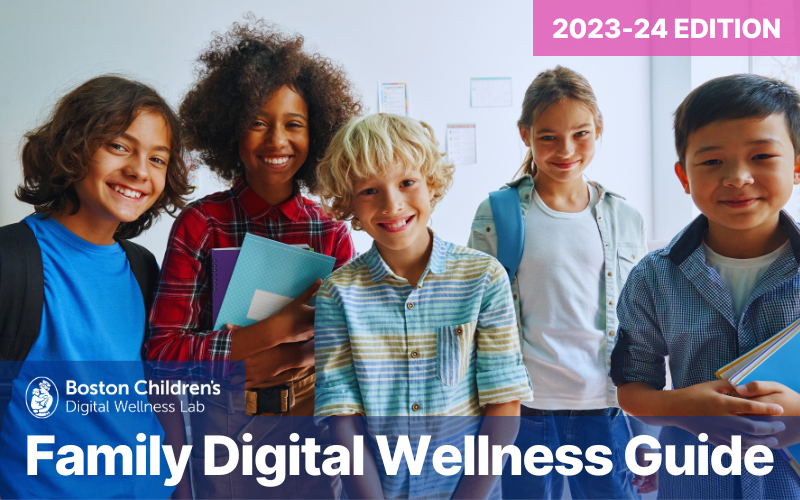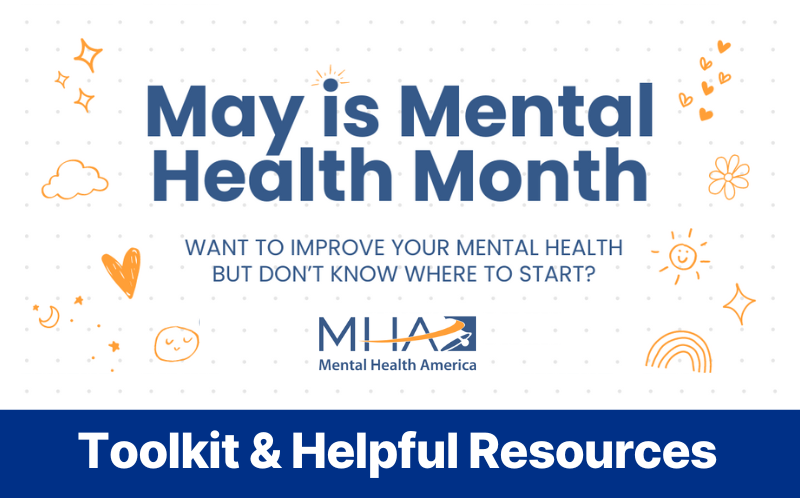At the Digital Wellness Lab, we see firsthand through our work that navigating complexity has become the norm. While many of us recall a time without smartphones and near constant connectivity, most young people today can’t imagine a life without the internet.
And despite the unprecedented connectivity afforded by our devices, loneliness has emerged as a pressing public health issue. While we can engage in real-time conversations with loved ones across the globe, the constant connectivity also exposes us to social exclusions, such as not being invited to a nearby friend’s gathering. Recent surveys have found that approximately half of U.S. adults report experiencing loneliness, with some of the highest rates among young adults.
Our increasingly digital world can significantly influence mental health, presenting both opportunities and challenges. But when we are experiencing problems, knowing where to begin can be particularly daunting. This is why each May — Mental Health Month — Mental Health America (MHA) seeks to raise awareness of the important role mental health plays in our lives by providing resources to help people take action toward protecting their mental health and overall wellbeing. The theme of MHA’s 2024 campaign is “Where to Start: Mental Health in a Changing World.”
LEARN how modern life affects mental health with new resources to navigate our changing world.
ACT by building a coping toolbox to manage stress, difficult emotions, and challenging situations.
ADVOCATE to improve mental health for themselves, the ones they love, and their community.
Mental Health America created a toolkit with free, practical resources for addressing mental health. While these tools were designed for adults, most can be helpful to adolescents and teens. For older children, we suggest using the topics covered as conversation starters. For younger children, try practicing the concepts together.
Fact Sheets
- 4 Things Likely Affecting Your Mental Health, and 4 Things You Can Do About It
- Things You Can Say When You’re Not Fine
- What to Say When Someone Tells You They’re Fine But They’re Not
- Negative News Coverage and Mental Health
- Helpful vs Harmful Ways to Manage Emotions
- Building Your Coping Toolbox
Coping Tools
- Dealing with Tough Situations (worksheet)
- Looking for Good (worksheet)
- Managing Frustration and Anger (worksheet)
- Processing Trauma and Stress (worksheet)
- Social Confidence and Connections (worksheet)
- Time to Talk Letter
- What’s Underneath Word Bank
- Where to Go Decision Map
- Coloring Page
Additional Resources
- MHA Mental Health Screening: Note: Online screening tools are meant to be a quick snapshot of your mental health. If your results indicate you may be experiencing symptoms of a mental illness, consider sharing your results with someone. A mental health provider (such as a doctor or a therapist) can give you a full assessment and talk to you about options for how to feel better.
- MHA Mental Health Resources: Includes an extensive list of 24/7 mental health hotlines, trusted external partner resources, as well as MHA tools to help you learn, act, and advocate.
- Clinic for Interactive Media and Internet Disorders (CIMAID): If you believe your child is exhibiting signs of Problematic Interactive Media Use (PIMU), CIMAID at Boston Children’s Hospital can help. Co-founded by the Lab’s founder and director, Dr. Michael Rich, CIMAID accepts all major insurance providers, including MassHealth.
- Digital Wellness Lab’s Family Digital Wellness Guide: Our recently updated 2023-24 guide is also available in Spanish.
It’s important to remember that working on your mental health, and that of your child, takes time and requires patience. But by taking the first steps, you can develop long-term strategies to support yourself and your loved ones.If you are interested in keeping up to date on our work at the Digital Wellness Lab to understand and promote positive and healthy digital media experiences for young people, please consider signing up for our monthly newsletter.







